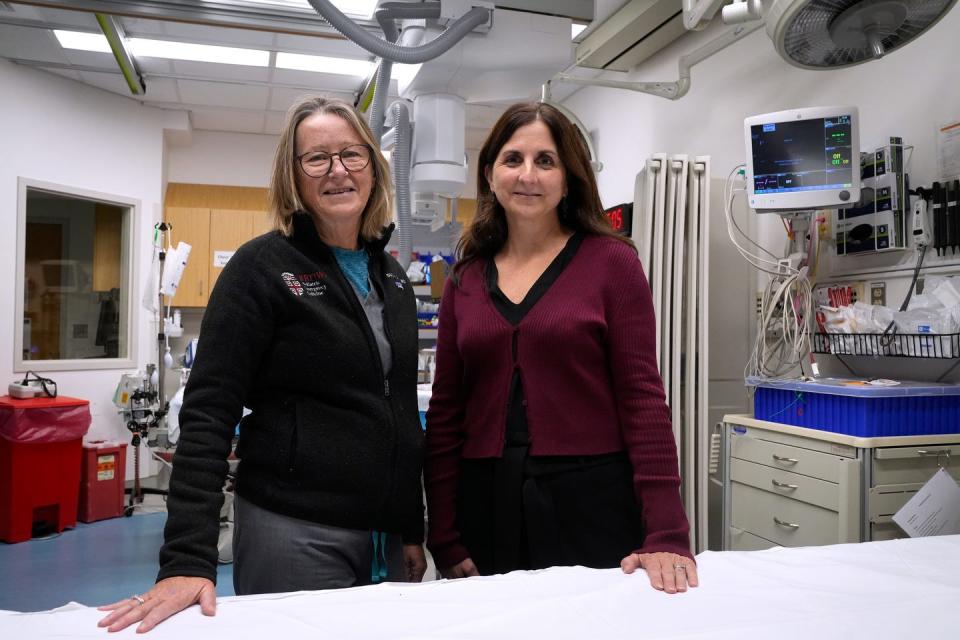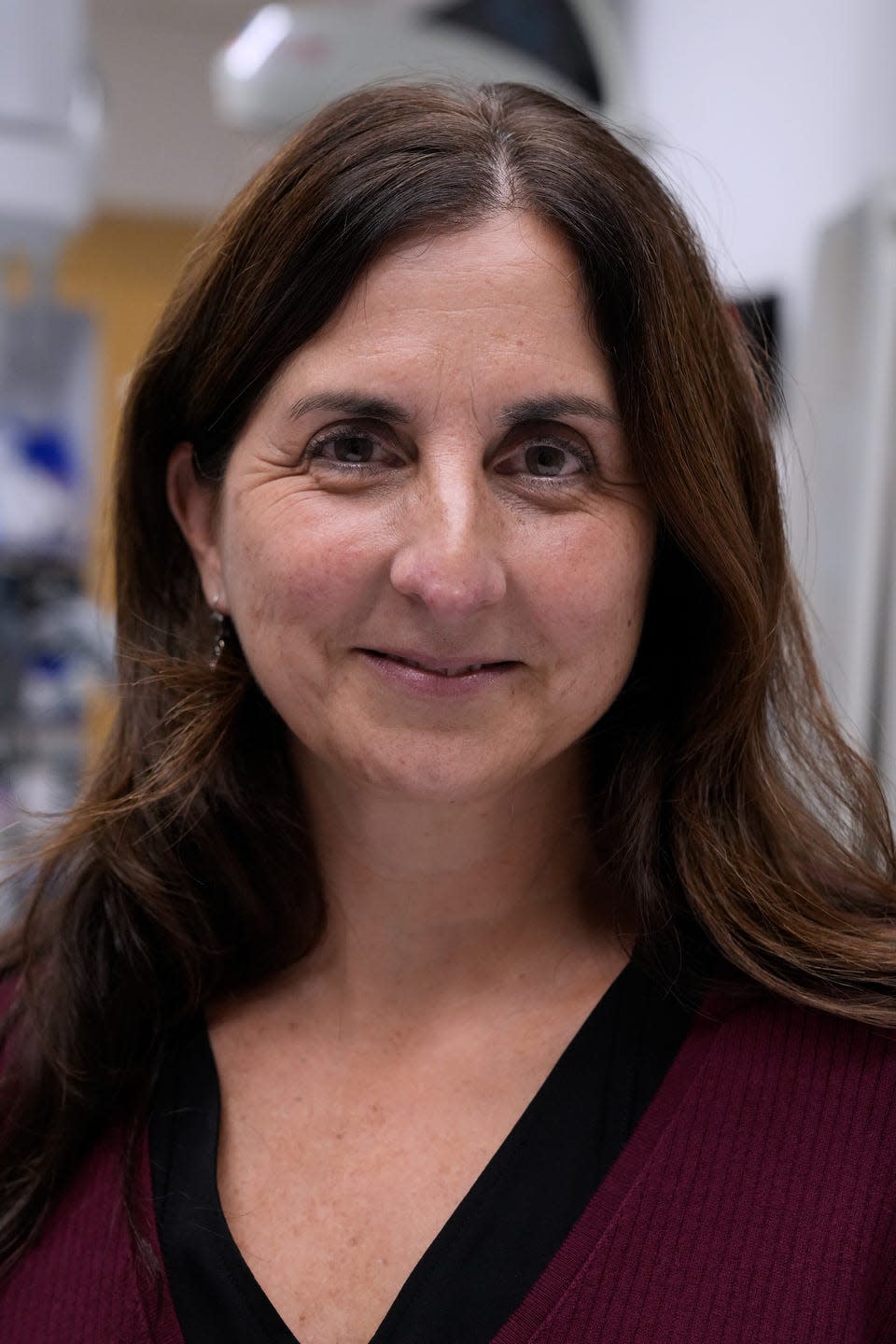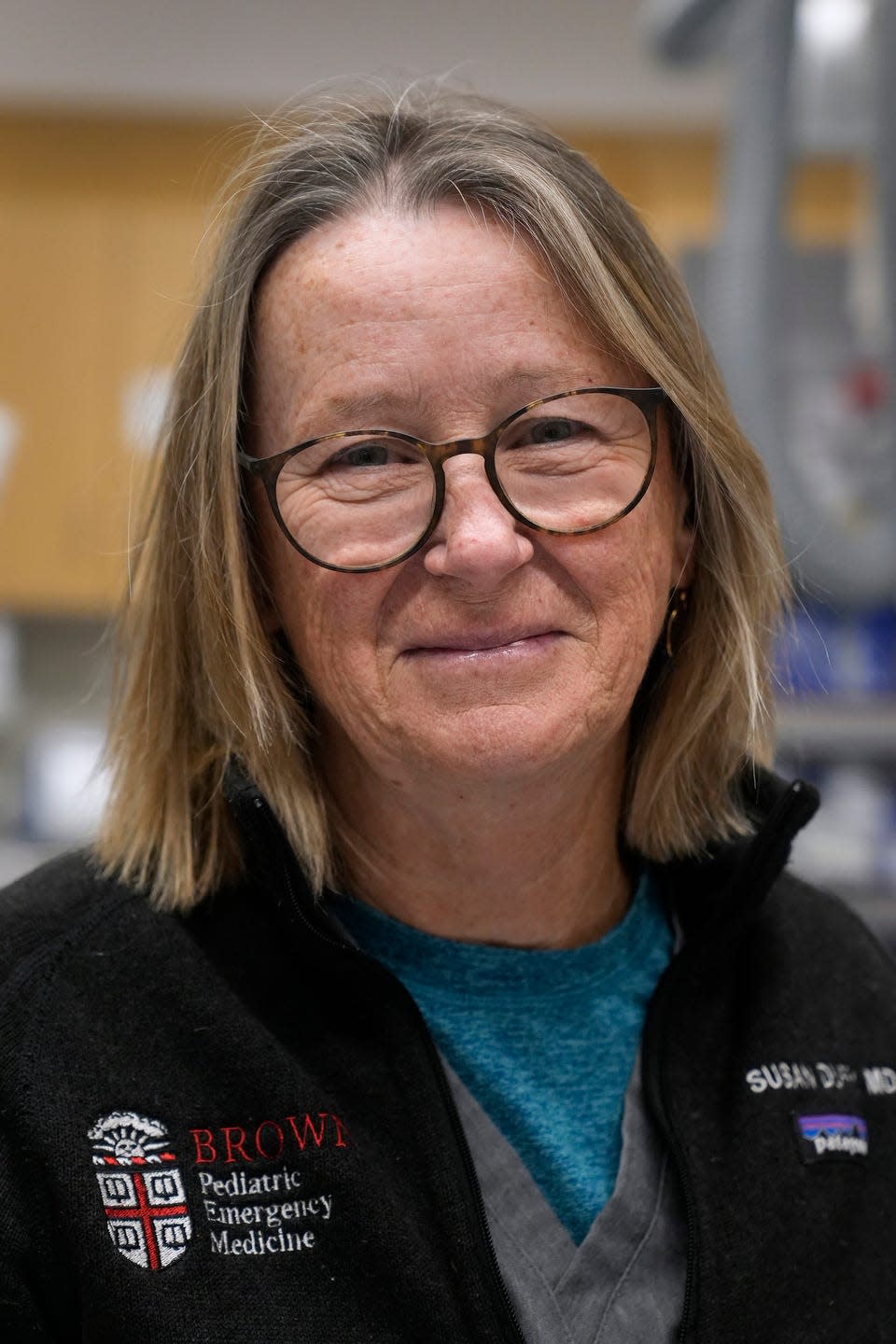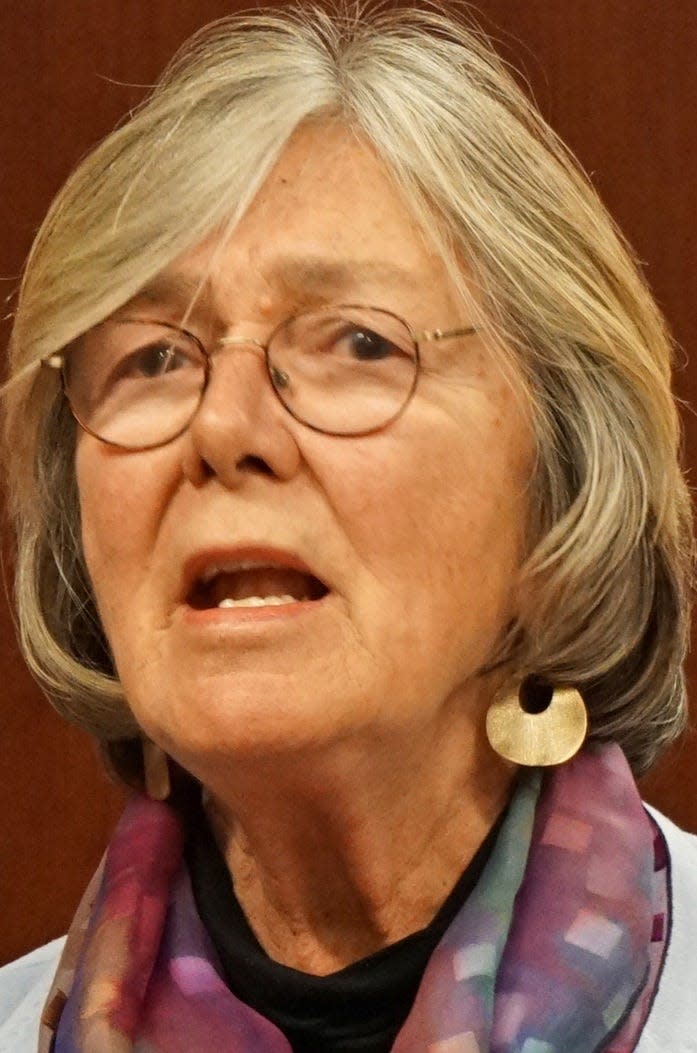'No one was doing anything': How this program is caring for RI's sexual assault victims
In Rhode Island, it’s estimated that one in eight women is sexually assaulted during their lifetime.
Add to that the reality that about 63% of adult sexual assaults are never reported to the police, less than a third of all survivors ever seek medical care and fewer than 20% pursue a criminal complaint.
With those grim statistics in mind, Rhode Island Hospital this year launched the state’s first Sexual Assault Forensic Examiner Program: RI SAFE.
“This is a horrific crime. It’s so important to do everything we can for the victims as a state,” Gina Scordino, director of advocacy at the Elizabeth Buffum Chace Center, said.
In 2021, the U.S. Department of Justice awarded Rhode Island Hospital a three-year, $599,966 grant to develop a coordinated, statewide response for sexual assault survivors. RI SAFE’s mission is to ensure that victims have access to trauma-informed medical and forensic care in order to help them achieve both healing and justice.

Lifespan matched that grant, and RI SAFE has been implemented at four Rhode Island hospitals: Rhode Island, Hasbro Children’s, Miriam and Newport, with a goal of cultivating a culture of compassionate, patient-focused care and providing skilled forensic exams. All emergency department clinicians, staff and interpreters undergo mandated training.
“We’re the only state not to have a specialized program until now. This is the first comprehensive program,” said Dr. Susan Duffy, a pediatric emergency medicine physician at Hasbro Children’s Hospital and medical director of RI SAFE.
'There is a lot of trauma involved'
Sexual assaults are complex crimes. Often, victims are besieged by guilt, ambivalent about whether to report the attack and beset with worry about sexually transmitted disease and pregnancy. Alcohol or other substances are frequently in play. At times, the victims are not believed by the police.
RI SAFE relies on a team of practitioners on call 24/7 who are trained to offer survivors guidance on navigating the criminal justice process and team them up with advocates to ensure they receive support after they walk out the hospital door.
“There is a lot of trauma involved with sexual assaults,” Duffy said. “It’s often a crime in which the victim is not believed.”
So far, there are 15 trained Sexual Assault Forensic Examiners, many of whom are from the ranks of emergency departments and view the program as an opportunity to alleviate disparities in care and enhance patients' experience, Duffy said.
All team members have completed the nationally recognized 41-hour SAFE/SANE course through the International Association of Forensic Nurses. In addition, they have completed 16 hours of clinical skills training, on top of meeting Lifespan training requirements.
Victim's body treated as crime scene
Lori Clements, a trained forensic nurse, is the program’s director. RI SAFE started caring for patients in mid-January and had seen 78 as of the start of October, hovering around 10 victims a month, Clements said.
“Victims of sexual violence need a place to go,” Clements said. “We see everyone and support them where they’re at.”
It’s a hybrid of medical and legal care combined with advocacy, in many respects.

RI SAFE providers discuss the benefits of collecting evidence, as a survivor’s body is essentially a crime scene. The examination is painstaking and generally spans a minimum of three hours, with the practitioners trained to safeguard the chain of custody and document the victim’s account. The evidence is kept at the state Department of Health for 10 years, and for life for sexual assaults involving minors.
The patients receive haven boxes containing a change of clothes, a journal and other personal items, as well as a list of referrals for mental health care and follow-up medical testing and treatment.
“They sit with them. They don’t just hand them out onto the street,” said Kimberly Demers, director of community services at Blackstone Valley Advocacy Center.
Blackstone Valley Advocacy Center, which serves victims of domestic violence and sexual assault, sends an advocate to the hospital to provide case management and follow-up services, such as counseling and support groups, Demers said.
Victims could fall through the cracks
To the Elizabeth Buffum Chace Center's Scordino, the previous lack of a coordinated approach was a disservice to victims. Survivors reported spending hours in the emergency room waiting for a trained nurse to arrive to collect evidence. Sometimes, there wasn’t a forensic nurse available at all.
“Imagine having been the victim of a brutal rape and having to sit for hours in a hospital. We’d hear about victims leaving the hospital,” Scordino said.

Scordino credits Duffy and her team for stepping up to fill in the gaps. Nobody is waiting for trained staff anymore, so victims can feel confident they will be getting trauma-informed care, advocates said.
“They took the initiative to say we’ve got to do something where no one was doing anything for years,” Scordino said.
More: When sex assault survivors seek critical care, many US hospitals are ill-equipped
Getting trained staff to every hospital in the state
The intention is to implement the program statewide, even to non-Lifespan hospitals, to ensure continuity of care.
At South County Hospital, for example, trained staff are not always on hand, Demers said.
“That’s concerning when you have a large college presence in that part of the state,” Demers said.
Women & Infants Hospital has its own Sexual Assault Nurse Examiner, or SANE, program with trained providers based in the emergency department. It sees about 110 sexual assault victims each year.
“All our Emergency Department nurses will be required to be SANE trained, and they are currently being offered the training as our hospital transitions to offering more traditional emergency care,” spokeswoman Doreen Gavigan said in an email.
Dr. Erica Hardy, director of the Women's Infectious Disease Consult Service at Women & Infants, would also like to see a global approach.
“A shared program would be beneficial,” Hardy said. “I think the more coordination, the better. The more universal protocols we have, the better.”
A universal approach would allow the state to better track numbers, and increased awareness could bring forward more survivors, she said.
Could the state play a role?
Peg Langhammer, executive director of Day One, would like the state to replicate the Massachusetts Sexual Assault Nurse Examiner Program, a national leader that falls under the oversight of the Massachusetts Department of Public Health.
Massachusetts is the only state in the country with a state budget appropriation to operate a SANE Program, as it has since it began in 1995. That approach allows the DPH to operate a standardized statewide program that includes training curriculum, protocols and customized evidence collection kits, according to the Massachusetts Department of Health. It has cared for more than 35,000 patients over the last 28 years.

“I think the state has to take it on,” Langhammer said. “I think Rhode Island is positioned to do it.”
Langhammer praised the RI SAFE program for enhancing survivors’ recovery and hopes it will lead to increased reporting rates in the Ocean State.
“It’s in the best interest of victims, but it also has the effect of bringing people to justice,” she said.
The state Department of Health staff helped develop the training program for RI SAFE, Joseph Wendelken, the department's spokesman, said.
“If any other facilities are looking to get something similar off the ground, we would be supportive,” Wendelken said.
Spreading the word
Clements plans to do outreach to colleges and universities to raise awareness about RI SAFE.
“Patients stay with you," Clements said. "If we can set them on a healing path, that means a lot to me personally and professionally.”
This article originally appeared on The Providence Journal: How Rhode Island's sexual assault care program helps survivors
